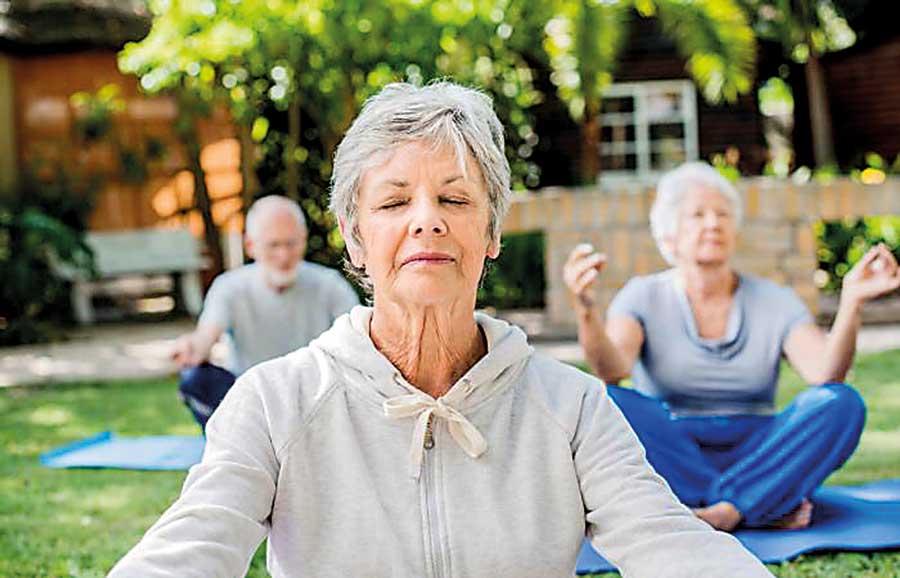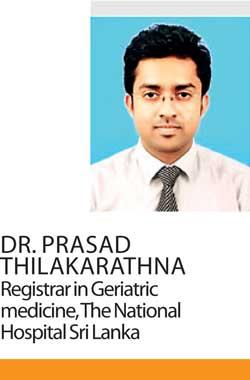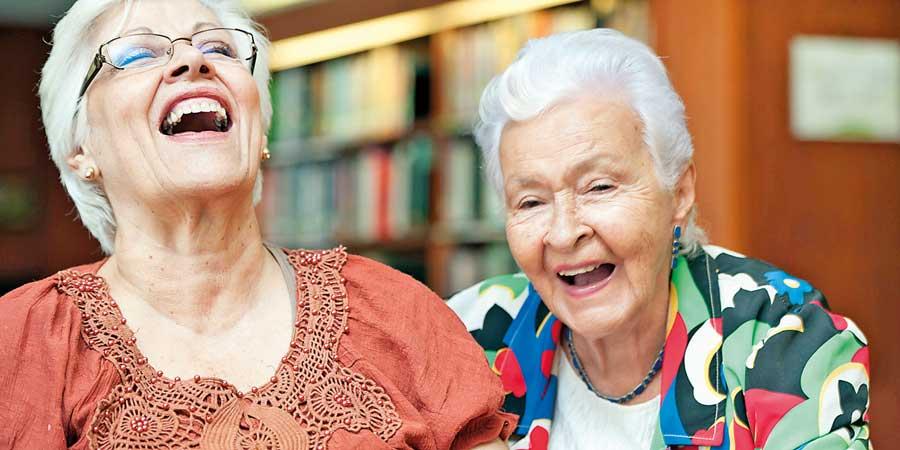03 May 2019 - {{hitsCtrl.values.hits}}

 When you were born to this world, your genes had already decided on how you would start ageing, slowly deteriorate and breathe your last. Ageing is inevitable yet going through it with a positive mind-set would definitely help in ageing beautifully and gracefully with a satisfactory quality of life full of happiness and well-being.
When you were born to this world, your genes had already decided on how you would start ageing, slowly deteriorate and breathe your last. Ageing is inevitable yet going through it with a positive mind-set would definitely help in ageing beautifully and gracefully with a satisfactory quality of life full of happiness and well-being.
To shed light on the beauty of ageing, we had a discussion with Dr. Prasad Thilakarathna, Registrar In Geriatrics, NHSL, Colombo.
“Ageing can be defined as the progressive accumulation of damage to your cells, tissues and organs, leading to disease and death. But the most widely accepted idea is that it is just a part of the life cycle; a person is born, goes through childhood, adolescence and adulthood and at a certain point in time, begins to age” says Dr Thilakarathna.
According to him, Ageing is a process that is genetically determined and environmentally modulated where there is a persistent decline in the age-specific fitness components of human beings due to internal physiological deterioration. This leads to a gradual decrease in physical and mental capacity leading to a growing risk of age-associated adverse health conditions and finally death.
Ageing is not an illness
Ageing is definitely not a pathology. In fact, it is a facet of life. Being a complex process, not everyone ages the same way, and it is influenced by a myriad of factors. Several insights and theories show that both, internal and external factors play a crucial role in ageing. The human body is negatively affected by external influences such as UV radiation, free radicals or environmental pollutants that accumulate during life and sooner or later lead to diseases and signs of ageing.
Research assumes that several tissue and cell components lose their function over the years, leading to a diminished resilience and cell functionality. Moreover, during ageing alterations in our genetic information pool “DNA” can be observed.Whatever the genetic predisposition may outline: a major influencer of individual ageing is lifestyle. Eating and drinking habits are equally as important as sleep rhythm, smoking or occupational and psychological stressors.
Consequences are variable
Ageing of the population poses several profound impacts on every aspect of life. As far as the symptoms are concerned, our hair turns white, men may go bald, might forget things easily, we need glasses to see up close, we hear less, and so on. The most apparent age-related cognitive change is the decline of memory. Elders are also at an increased risk of infections along with rapid decline in immunity which helps to fight against infections.
Ageing may also put you at increased risk of a range of diseases like Diabetes and Osteoporosis.
Frail-the newer entity
“Approximately 15% of community-living seniors fall into the category of “frail”, defined as the accumulation of multiple interacting illnesses, impairments, and disabilities. Research evidence says that about 33% of community living older adults have multiple chronic conditions and take five or more medications, have higher rates of health care utilisation, and are at high risk for adverse events (e.g., death, hospitalization, and falls)” highlights Dr Thilakarathna.
Explaining more, he stated that there is an increased risk of nutritional problems due to poor intake and depletion of stored nutrients. Incontinence and constipation are both common with ageing, and can impact quality of life. As the disease burden increases the number of prescribed medications too increases (polypharmacy) making them more susceptible to drug induced side effects and drug interactions, which is a major issue we encounter in our clinical practice.
Challenges immense, but road ahead clear
“The ageing of Sri Lanka’s population has long been presented as one of the most serious challenges faced as a nation in the coming decades. Ageing implies a restructuring of the economy such as increase in the dependency ratio, increased government spending on health care and pensions putting burden on the working population with decrease in the economical growth rates. However, if the resources available could be utilised with more caution and foresight, the challenges would be dealt efficiently” Dr Thilakarathna underscored.
Ageing gracefully-The goals
“How do you feel about growing old? For some, it’s a scary time filled with change and loneliness.But it doesn’t need to be that way. How we choose to define, view, and accept the changes is crucial to our ability to “age gracefully.” It is via a process of maintaining a positive attitude, feeling good about yourself, keeping fit and healthy, and engaging fully in life as you age”

Tips and tricks
Successful ageing is multidimensional, encompassing the avoidance of disease and disability, the maintenance of high physical and cognitive function, and sustained engagement in social and productive activities while also participating in community and political life.
There are different psychosocial theories which describe how people deteriorate in old age.
As we age we remove ourselves from social roles and interactions. We do this because we realise death is imminent. This mutual withdrawal or “disengagement” results in decreased interaction between the ageing person and others in the social system he belongs to negatively affecting the aging process.The “activity theory” proposes that ageing adults who engage in daily activities, that they perceive as productive, age successfully.
“Continuity theory” is a person’s ability to maintain his or her habits, preferences, lifestyle, and relationships when ageing. It states that people try to maintain continuity between who they were and who they’re becoming. In simpler terms, as long as we are able to recall who we were and link it with what we are becoming, the flow of life could be maintained and result in higher quality of life. It is quite similar to the concept of crystalised intelligence which says that a person takes his or her knowledge from the past and applies it to future changes.
-Older adults can enjoy social media and Volunteerism plays a big part of life for aging adults.
-Sex doesn’t stop at age 65. A healthy sex life and a healthy life go hand and hand.
Attitude is everything. Regardless of how old you are, if you have a negative attitude, it makes the ageing process a bad experience. Sometimes ageing is difficult, and it can be depressing. But, research supports maintaining positive attitude has a major impact on your ageing process. How will you plan and prepare for the next decades of your life?” Some don’t want to think that far ahead. Planing early and anticipating and preparing to accept the physical, psychological and economical strains you will undergo as you age allows a smooth aging process.
“Maintaining a healthy lifestyle, engaging in regular exercise, consuming plenty of vegetables and fruits, reducing read meat consumption, maintaining adequate hydration, avoiding smoking and alcohol, maintaining good social relationships, having a healthy sex life, minimising psychological stressors are also key factors that will decide how gracefully you age” states Dr Thilakarathna.
“Furthermore, the early detection of disease processes through screening and early initiation of medical treatment along with good rehabilitation is also equally important in preventing disabilities and dependency” he concluded.
19 Apr 2024 24 minute ago
19 Apr 2024 59 minute ago
19 Apr 2024 1 hours ago
19 Apr 2024 2 hours ago
19 Apr 2024 2 hours ago